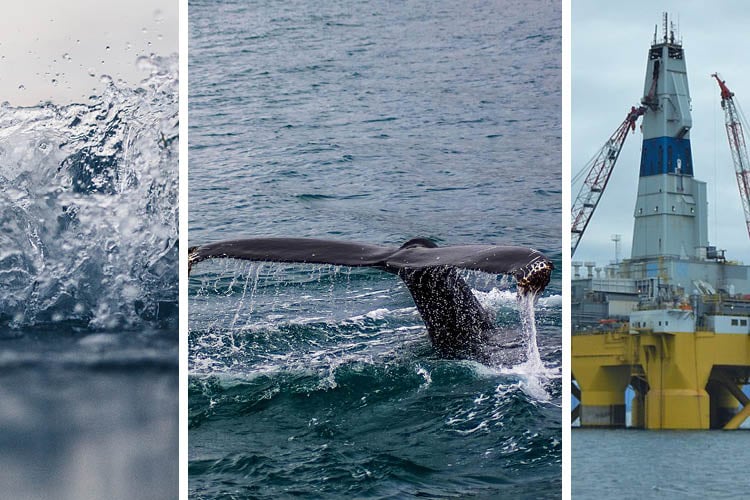88 pounds of plastic found in stomach of dead whale
A young Cuvier’s beaked whale was found on the coast of the Philippines last week weak and vomiting blood. When it died a short time later, a necropsy revealed the whale had 88 pounds of plastic in its stomach, including 16 rice sacks and plastic shopping bags from local grocery chains. A marine biologist that worked on the case, Darrell Blatchley said that the plastic in the whale’s stomach was so compact that it was as hard as a baseball. “That means that this animal has been suffering not for days or weeks but for months or even a year or more,” Blatchley told NPR. Nearly nine million tons of plastic ends up in the ocean every year, the equivalent of one dump truck of plastic every minute.
Pooler, GA city council approves resolution opposing offshore drilling and seismic testing
Pooler, GA has joined other Georgia cities such as Savannah, Thunderbolt and Richmond Hill in opposing offshore drilling and seismic testing. The Pooler city council unanimously approved a resolution stating their opposition of such actions, which threaten the tourism and fishing industries. Offshore drilling and seismic testing is also harmful to sea life, which are negatively impacted by the sonic booms that happen underwater every 10 to 12 seconds while tests are being performed. In total, more than 200 towns and cities on the east coast have passed resolutions opposing seismic testing and offshore drilling.
West Virginia House of Delegates passes bill, ignoring recommendations from EPA
Last year, the West Virginia Department of Environmental Protection (DEP) released a proposal to update 60 water quality standards in the state based on recommendations made in 2015 by the Environmental Protection Agency (EPA). The standards focused on lowering concentrations of pollutants known to negatively effect human health, including cancer-causing chemicals found in rivers and streams.
Last November, the West Virginia Manufacturers Association asked the joint rule-making review committee, which approves rules proposed by the DEP, not to implement the new standards. The association argued that the EPA encourages states to consider state specific science and because West Virginians are heavier their bodies can handle more pollutants. They also argued that because West Virginias drink less water they are less exposed to pollutants. The committee approved the association’s request. Another legislative committee later put the stricter standards back into the proposal, but this February the Senate Judiciary Committee voted to give the Manufacturers Association until October 2019 to gather more state-specific data to report to the DEP with the hope of changing the proposal once again and considering the bill during the 2021 legislative session.








